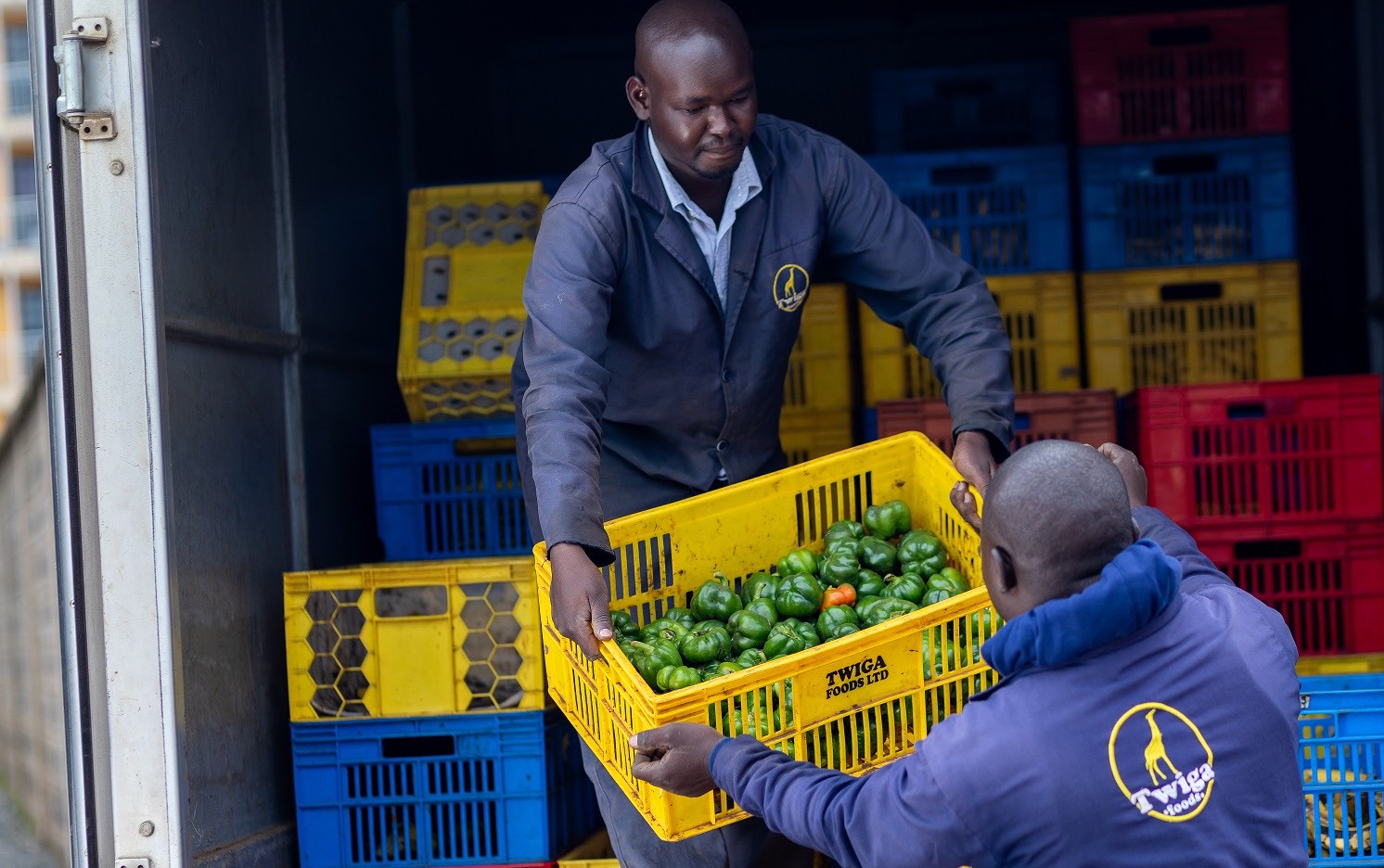To celebrate this year’s Africa Day for Food and Nutrition Security (Oct. 30), here is a blog post for optimists. Over the past two decades we’ve seen widespread progress across Africa in overcoming the multiple obstacles to economic growth and eradicating poverty. The gradual transformation of Africa’s food systems has been key to this process.
To sustain and further accelerate growth—particularly in the face of demographic changes, urbanization, shifting diets, climate change and protracted humanitarian crises—a new set of innovative solutions is urgently needed. Agriculture has long been a global frontier of modernization and innovation. Over the centuries, the sector has gone through several stages of reform, including the Green Revolution, agricultural mechanization and most recently digitalization. Each has transformed the way that our food is produced and consumed and reshaped the livelihoods of hundreds of millions of farmers across the globe.
Digital technologies, tools, and services have mushroomed in the agriculture sector in recent years. Young entrepreneurs from Africa’s cities have flocked to rural areas, developing often ingenious solutions to some of the most pressing challenges. More broadly, digital technologies and services will play an increasingly central role for African countries in meeting their targets on poverty reduction, food security, and nutrition. For example, studies suggest that in developing countries, each additional 10% of internet penetration can lead to a 1.35% increase in per capita GDP growth.
The digitalization of Africa’s food system presents new opportunities for the use of digital and data-driven technologies at each segment of the agriculture value chain. These can guide and support decisions at the production level; on value chain optimization and on storage methods; and help farmers prevent food waste and loss at the harvest and post-harvest levels. Data from digitalization efforts can also be used to inform the design of policies for agricultural transformation.
Increasingly, digital technologies and services are also key to driving nutrition and health improvements. And rightly so. Despite the visible progress in many areas, reducing malnutrition—undernourishment, micronutrient deficiencies, and overweight and obesity—remains a massive global challenge. Limited access to information, particularly among women and vulnerable groups in remote areas, is a major barrier to the adoption of best nutrition practices. Digital technologies can remedy this problem, boosting awareness and knowledge about the importance of healthy diets from pregnancy onwards, and linking producers of nutritious foods with consumers who most need them.
One example is mNutrition, which targets women and young children to change child feeding and dietary practices. The initiative aims to create demand for nutrition and health-related services, establish timely and efficient data surveillance tools for key nutrition indicators, and promote nutrition-sensitive agriculture practices among 3 million people across 12 countries in Africa and Asia. Examples of the nutrition-sensitive interventions include the cultivation and consumption of more nutritious crops, as well improved livestock management and consumption of animal-based products. The mHealth service under mNutrition provides relevant, actionable messages via SMS in several African countries south of the Sahara. Crucially, about 81% of long-term mHealth users exclusively breastfed their babies for the first six months, while 69% of new users did so.
Another start-up, Twiga Foods, was created in 2014 to connect small fruit and vegetable farmers in rural Kenya to small and medium-sized vendors in urban areas. Through a mobile-based cashless platform, Twiga can offer higher prices and a guaranteed market to farmers, thus reducing post-harvest losses, and ensure lower prices and a reliable supply to vendors. Urban consumers also benefit from prices as much as 10%-15% below those of the traditional wholesale market for their fresh produce, allowing them to consume more diverse, fresh, and nutritious foods. Twiga employs blockchain technology to keep track of the transactions carried out by its clients. Using its data, the clients can also assess their ability to access loans and other financial products. In addition, Twiga Foods uses M-Pesa to manage and streamline their payment processes.
Governments across the continent are also stepping up. For example, the Nigerian government introduced a new digital delivery mechanism, the eWallet program, to reform its input subsidy program. The eWallet program manages the delivery of fertilizer and seeds farmers are entitled to; the location of the agro-dealers supplying inputs; and the amount of out-of-pocket contribution. A transaction confirmation is sent once inputs have been successfully purchased. Not only did this introduce transparency and traceability of transactions, the eWallet program also offered an avenue to contact farmers and was eventually used to deliver additional benefits, including vouchers for nutritional supplements. By 2017 the eWallet system was benefiting 17 million farmers (many of them women), 2,500 agribusinesses, 800 e-extension workers, and over 2,500 service points in Nigeria.
Thanks to these and other rapidly emerging and adaptive digital technologies and services, African’s food systems are poised to transform. To maintain the current momentum, stakeholders along the food value chain must join forces to bring proven policy innovations, interventions, and technologies to scale.
What should be done to bridge the current digital divide and allow all food system actors to benefit from these innovations? The recently-published Malabo Montpellier Panel report Byte by Byte says that rural communities need to be better connected to electricity (including renewable and off-grid), and that households, schools, and workplaces should have more reliable telecommunications and internet connections, including fibre optic. Governments and the private sector should also consider adopting emerging technologies that can allow them to leapfrog more traditional infrastructure approaches. Mobile internet services and handsets also should be made more affordable and accessible.
Digital technologies and services are powerful tools that—if brought to scale or replicated across borders—can help to transform Africa’s food systems and ensure that the progress we have seen in tackling hunger and malnutrition is sustained and accelerated.
Katrin Glatzel is an IFPRI Research Fellow and Program Head of the Malabo Montpellier Panel. Sheryl Hendriks is Director of the Institute for Food, Nutrition and Well-being at the University of Pretoria and a member of the Malabo Montpellier Panel.







